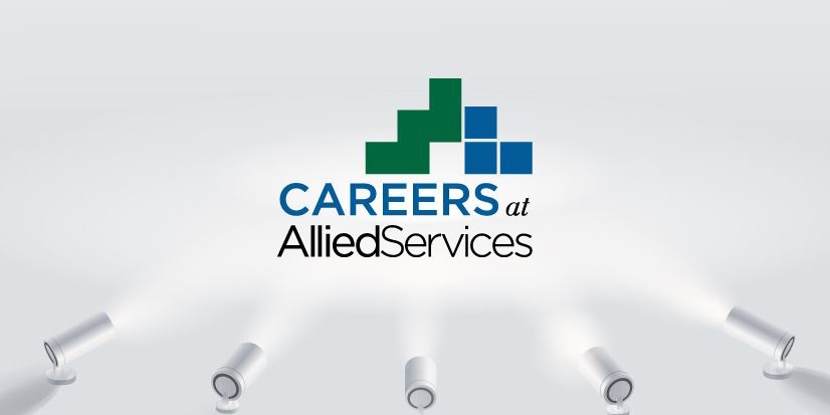Regaining Independence Following Limb Loss: Benefits of Occupational Therapy
- Category: News
- Posted On:
- Written By: Allied Services Integrated Health

More than 2 million Americans live with limb loss or limb differences. Approximately 1,000 children are born each year in the United States with congenital limb difference, and approximately 185,000 amputations occur in the United States each year. Diabetes and peripheral vascular disease are the leading causes of limb loss followed closely by traumatic accidents.
For people living with limb loss or limb difference, access to appropriate rehabilitation therapy and prosthetic training is vital for physical, emotional, social, and mental well-being. The right support can make all the difference in helping individuals to thrive and maximize their independence.
Allied Services Amputation Recovery Program offers a range of services including medical expertise, therapeutic intervention, education, outreach, support, and advocacy. Following amputation, your interdisciplinary rehab team may include a physiatrist, occupational therapist, physical therapist, rehabilitation nurse, counselor, medical social worker, certified amputee peer visitors, and connection to support groups.
As an occupational therapist, I have had the opportunity to support numerous individuals in the days, months, and years, following a limb loss. The role of an occupational therapist is to work with patients to maximize their independence in activities of daily living. The journey of an amputee will be as unique as they are. Therapeutic interventions personalized to the patient can help facilitate purposeful living.
In the initial phase following amputation occupational therapists work with the patient to teach adaptive techniques and strategies to perform self-care activities such as dressing, bathing, and transferring to various surfaces. Before being discharged home, the occupational therapist will do a home assessment interview with the patient and/or family member. They will make suggestions for home modifications such as a stairlift, bathroom adaptations, ramps, or kitchen alterations. If the patient has received a prosthesis, the patient and possibly a caregiver will learn how to care for the residual limb, receive techniques for desensitization of the residual limb, and how to manage phantom limb pain.
Occupational therapists also provide support and expertise beyond the initial focus on self-care activities. We advise on vehicles and adapted driving options, and provide home, school, or work site evaluations to identify barriers and make accessibility recommendations. Limb loss can have an impact on all aspects of an individual’s life. That’s why occupational therapists offer support in returning to leisure activities. Many times, we incorporate a patient’s hobby into their rehabilitation. Learning to balance and maneuver with a lower limb prosthesis becomes a positive and motivating experience to a life-long golfer when a mini putting green is introduced into a therapy session.
Jim, a recent patient from Scott Township, underwent an amputation of his right leg above the knee. At 88 years old, he had to relearn how to move through his everyday life. He describes his feelings of loss.
“When I first lost my leg I felt as if my whole life was placed on hold as far as getting around, driving, walking, and so on. It was suggested to me that I should start thinking of a nursing home and I wanted no part of that. That is when Allied Rehab came into the picture. With the help of my Occupational and Physical Therapists and all of the nursing staff, I was able to start living life again. I was taught how to put on my new prosthesis, walk, take care of myself, prepare meals in the kitchen, get into a car, and participate in community activities outside. They gave me the confidence and encouragement I needed to return home to live alone. My time at Allied Services and the training I received was a tremendous help and gave me a new outlook on life!”
Learn more about Amputation Recovery at Allied Services.
Amy Frantz, MS, OTR/L, Allied Services Rehab Hospital in Scranton, has more than 35 years experience in the rehab setting specializing in the treatment of geriatric debility, amputations, spinal cord injuries and lymphedema.



